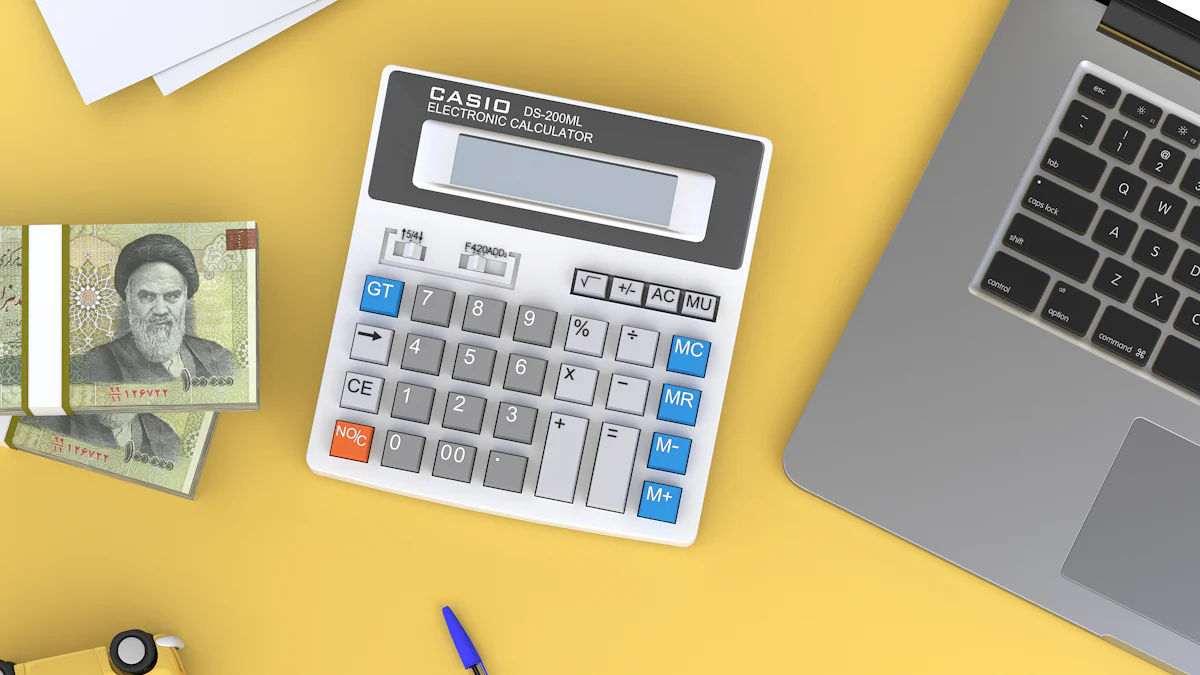What is a debt consolidation loan?

Managing multiple debts can feel overwhelming, especially when each one comes with its own due date and interest rate. A debt consolidation loan offers a way to simplify this process. It combines all your debts into a single loan, leaving you with just one monthly payment to manage. This can make debt repayment more straightforward and, in some cases, even save you money.
For example, credit card interest rates often exceed 20% for borrowers with lower credit scores. In contrast, a debt consolidation loan might offer rates as low as 9% if your credit score is strong. However, it’s important to know that not all loans guarantee savings. Your credit score and loan terms play a big role in determining whether this option works for you.
Some people think debt consolidation is a scam or confuse it with other options like debt management plans. While it’s a legitimate tool, you’ll need to research lenders carefully to avoid predatory practices. Understanding how it works can help you decide if it’s the right step for your financial journey.
Key Takeaways
A debt consolidation loan combines many debts into one. This makes monthly payments easier and may lower interest rates.
Look at lenders closely to find good deals. Avoid bad practices. Use online tools to check options without hurting your credit score.
Combining debt can help your credit score. It improves payment history and lowers how much credit you use.
Watch out for problems like longer repayment times. These can mean paying more interest. Fees might also increase your costs.
Think about other options like debt plans or balance transfer cards if a debt consolidation loan isn’t right for you.
How does a debt consolidation loan work?

The process of consolidating debt
Applying for a debt consolidation loan
The first step in consolidating debt is applying for a debt consolidation loan. You’ll need to research lenders and compare their terms, interest rates, and fees. Many lenders require you to provide details about your income, credit score, and existing debts. If your credit score is strong, you’re more likely to qualify for lower interest rates. Some lenders even offer online prequalification tools, which can give you an idea of your loan options without affecting your credit score.
Using the loan to pay off existing debts
Once approved, the lender provides funds to pay off your existing debts. This step simplifies your finances by replacing multiple payments with one monthly payment. For example, if you’re consolidating credit card debt, you’ll use the loan to clear those balances. Afterward, you’ll focus on repaying the new loan, ideally at a lower interest rate.
Types of debt consolidation loans
Secured debt consolidation loans
Secured loans require collateral, such as your home or car. These loans often come with lower interest rates and higher borrowing limits. However, they carry a risk—if you miss payments, the lender can seize your asset. This option might work well if you have a poor credit history but own valuable assets.
Unsecured debt consolidation loans
Unsecured loans don’t require collateral, making them less risky for you. However, they usually have higher interest rates because lenders take on more risk. If your financial situation has improved, you might qualify for better terms on an unsecured loan.
Fixed-rate debt consolidation loans
A fixed-rate debt consolidation loan offers consistent monthly payments and a stable interest rate throughout the loan term. This predictability makes budgeting easier. However, upfront costs like origination fees may apply, and borrowers with low credit scores might face higher rates.
Who offers debt consolidation loans?
Banks and credit unions
Traditional banks and credit unions are common sources for debt consolidation loans. They often provide competitive rates, especially if you already have an account with them. Credit unions may also offer more flexible terms for members.
Online lenders
Online lenders have become a popular choice for consolidating debt. They often provide faster approval processes and more flexible credit requirements. Many online platforms also include tools like a debt consolidation calculator to help you estimate your savings.
Benefits of a debt consolidation loan

Simplified debt management
One monthly payment instead of multiple
Managing multiple debts can feel like juggling too many balls at once. A debt consolidation loan helps you simplify this by combining all your debts into one. Instead of keeping track of several due dates and payment amounts, you’ll only have to focus on a single monthly payment. This makes it easier to stay on top of your finances and avoid missed payments.
Here’s how it works: when you consolidate debt, you shift multiple high-interest debts into one loan. This not only streamlines your payments but can also reduce your monthly payment amount. Some lenders offer extended repayment terms or lower interest rates, which can make your payments more manageable.
Simplifying your debt management can also have a positive psychological impact. It reduces the anxiety of juggling multiple debts and gives you a clearer financial picture. With fewer payments to worry about, you’ll feel more in control and better equipped to focus on your financial goals.
Potential for lower interest rates
How lower rates save money over time
One of the biggest perks of a debt consolidation loan is the potential to save money on interest. If you’re dealing with high-interest debts like credit card debt, consolidating them into a loan with a lower interest rate can make a huge difference.
For example, the average interest rate for a three-year personal loan in 2022 was around 11% for borrowers with a credit score of 720. Compare that to credit card interest rates, which often exceed 20%. By consolidating your debts into a lower-rate loan, you’ll pay less in interest over time. This means more of your money goes toward reducing the principal balance instead of just covering interest charges.
Borrowers with good credit scores (720 or higher) can often secure rates as low as 9%. Even if your credit score isn’t perfect, consolidating debt can still help you lock in a more favorable rate than what you’re currently paying.
Improved financial organization
Easier to track and manage payments
When you consolidate debt, you’re not just simplifying your payments—you’re also improving your overall financial organization. With only one payment to track, it’s easier to budget and plan for the future. You won’t have to worry about forgetting a due date or accidentally missing a payment.
This streamlined approach can help you stay consistent with your payments, which is key to improving your financial health. Plus, having a fixed-rate loan means your payment amount stays the same each month. This predictability makes it easier to plan your expenses and avoid surprises.
By consolidating your debts, you’ll gain clarity and peace of mind. You’ll know exactly where your money is going, which can motivate you to stay on track and work toward becoming debt-free.
Drawbacks of a debt consolidation loan
Risk of higher overall costs
Longer repayment terms may increase total interest paid
A debt consolidation loan might lower your monthly payments, but it can come with a hidden cost. If you choose a longer repayment term to make payments more affordable, you could end up paying more in total interest over time. For example, a five-year loan with a lower interest rate might seem like a good deal. However, stretching out your debt repayment means the interest keeps adding up month after month.
This is why it’s important to calculate the total cost of the loan before committing. Ask yourself: Will the savings from a lower interest rate outweigh the extra interest from a longer term? If not, you might want to explore other options or stick to a shorter repayment period.
Potential fees and penalties
Origination fees, prepayment penalties, etc.
Debt consolidation loans often come with fees that can catch you off guard. Many lenders charge an origination fee, which is a percentage of the loan amount. For instance, if you borrow $10,000 and the origination fee is 3%, you’ll lose $300 right off the top.
Some loans also include prepayment penalties. These fees apply if you pay off your loan early, which might seem counterintuitive. Lenders charge them to make up for the interest they lose when you repay ahead of schedule. Before signing any agreement, read the fine print carefully. Knowing the fees upfront can help you avoid unpleasant surprises.
Not a solution for underlying financial habits
Importance of addressing spending behaviors
Debt consolidation can simplify your finances, but it won’t fix bad spending habits. If overspending or poor budgeting got you into debt, consolidating it won’t solve the root problem. Without addressing these behaviors, you might find yourself back in debt even after paying off your consolidation loan.
To break the cycle, focus on creating a sustainable budget. Make sure it’s realistic so you can stick to it. You don’t want to set yourself up for failure by being too strict. Working with a credit counselor can also help. They can guide you in managing your finances and building better habits. Remember, debt consolidation is just a tool. True financial freedom comes from changing the decisions and behaviors that led to the debt in the first place.
Impact of debt consolidation on credit scores
Positive effects
Improved payment history with consistent payments
When you consolidate your debt, you simplify your payments into one monthly bill. This makes it easier to stay consistent with your payments, which is a key factor in improving your credit score. Payment history accounts for 35% of your FICO score, so paying on time every month can have a big impact. If you’ve struggled with missed or late payments in the past, a debt consolidation loan can help you turn things around. Over time, this consistency can show lenders that you’re a reliable borrower.
Lower credit utilization ratio
Another way debt consolidation can boost your credit score is by lowering your credit utilization ratio. This ratio measures how much of your available credit you’re using. For example, if your credit cards are maxed out, your utilization ratio is high, which can hurt your score. By paying off those balances with a consolidation loan, you free up your credit lines.
Here’s why this matters:
Credit utilization makes up 30% of your FICO score.
Lenders prefer a utilization ratio of 30% or lower.
A lower ratio signals to lenders that you’re managing your credit responsibly.
If your current utilization rate is high, consolidating your debt can make a noticeable difference in your credit score.
Potential negative effects
Hard inquiries during the application process
Applying for a debt consolidation loan usually involves a hard inquiry on your credit report. This happens when a lender checks your credit as part of the approval process. A single hard inquiry might lower your score by less than five points, and its impact usually fades after a few months. However, multiple hard inquiries in a short period can have a bigger effect.
The good news? Credit scoring models allow for rate shopping. If you’re comparing loan offers, inquiries made within a specific time frame are treated as one. This means you can shop around for the best loan without worrying about multiple hits to your score.
Closing old accounts may shorten credit history
When you use a debt consolidation loan to pay off credit cards or other accounts, you might decide to close those accounts. While this can help you avoid the temptation to rack up more debt, it can also shorten your credit history. Credit history length is another factor in your credit score. Lenders like to see a long, stable credit history because it shows you’ve managed credit over time.
Instead of closing old accounts, consider keeping them open with a zero balance. This keeps your credit history intact and can even improve your credit utilization ratio. Just make sure you’re not tempted to use those accounts again.
Alternatives to debt consolidation loans
If a debt consolidation loan doesn’t feel like the right fit, don’t worry—you’ve got other options. Let’s explore some alternatives that might work better for your situation.
Debt management plans
Working with credit counseling agencies
A debt management plan (DMP) could be a great choice if you’re struggling with unsecured debts like credit cards. These plans are typically offered by credit counseling agencies and last about three to five years. Here’s how they work:
You make one monthly payment to the credit counseling agency.
The agency negotiates with your creditors to lower interest rates or waive fees.
They distribute your payment to your creditors based on the agreed terms.
Before starting, a credit counselor will evaluate your financial situation and help you create a budget. While enrolled, you may need to close your credit card accounts to avoid adding more debt. This approach simplifies your payments and can reduce the overall cost of your debt. However, it requires commitment and discipline to stick with the plan.
Balance transfer credit cards
Transferring high-interest debt to a low-interest card
A balance transfer credit card can help you tackle high-interest debt. These cards often come with a promotional 0% interest rate for a limited time, usually 12 to 18 months. During this period, you can focus on paying down your balance without worrying about interest piling up.
But there’s a catch. Once the introductory period ends, the interest rate can jump significantly. If you haven’t paid off the balance by then, you might find yourself back where you started—or worse. Balance transfer cards also usually charge a fee, typically 3% to 5% of the transferred amount.
Compared to debt consolidation loans, balance transfer cards don’t provide a fixed payoff date. However, they can be a smart move if you’re confident you can pay off the debt within the promotional period.
Negotiating with creditors
Requesting lower interest rates or payment plans
Sometimes, the simplest solution is to talk directly to your creditors. You can explain your financial situation and ask for better terms, like a lower interest rate or a more manageable payment plan.
This approach has several benefits:
It can help you avoid damaging your credit score.
It often leads to faster resolutions, reducing financial stress.
While negotiating might feel intimidating, many creditors are willing to work with you if they see you’re making an effort. A quick phone call could save you money and make your debt easier to handle.
Bankruptcy
When it might be a last resort
Bankruptcy can feel like a scary word, but sometimes it’s the best option when your financial situation becomes unmanageable. It’s designed to give you a fresh start by wiping out certain debts or creating a repayment plan. However, it’s not a decision to take lightly because it comes with long-term consequences.
So, when should you consider bankruptcy? Here are a few situations where it might make sense:
Your debt is unmanageable: If you’re borrowing money just to pay bills or choosing which bills to pay each month, bankruptcy could help you reset.
You’ve lost your job: If your income is below the median for your household size in your state, Chapter 7 bankruptcy might be a good fit.
Your debt has gone to collections: Bankruptcy can stop foreclosure threats, wage garnishments, and other collection actions.
Most of your debt is dischargeable: Medical bills, credit card balances, and personal loans are often eligible for discharge in bankruptcy.
Your credit score is already low: If you can’t qualify for a debt consolidation loan due to poor credit, bankruptcy might be a better option.
While bankruptcy can provide relief, it’s important to understand the trade-offs. Filing for bankruptcy can cause your credit score to drop by at least 200 points if it’s in the good range (700 or above). For lower scores, the impact isn’t as severe, but it’s still significant. This drop can make it harder to get loans or credit in the future.
On the other hand, debt consolidation loans can help you rebuild your credit over time by simplifying payments and reducing interest. Bankruptcy, while offering a clean slate, leaves a lasting mark on your credit history and financial opportunities for years. If you’re considering bankruptcy, it’s worth consulting a financial advisor to weigh your options carefully.
A debt consolidation loan can be a powerful tool to simplify your debt repayment. By combining multiple debts into one loan, you reduce the hassle of managing several payments. If you qualify for a lower interest rate, you could save money and pay off your debt faster. However, it’s important to weigh the pros and cons. While it can streamline your finances, it won’t address the habits that may have caused the debt in the first place.
Before you decide to consolidate debt, take a close look at your financial situation. Ask yourself if you can commit to the new loan terms and whether it truly lowers your overall costs. Explore alternatives like balance transfer cards or debt management plans if they seem like a better fit.
If you’re ready to move forward, start by researching lenders. Compare interest rates, fees, and repayment terms. Prequalification tools can help you see your options without affecting your credit score. Consulting a financial advisor can also provide clarity and guidance. With the right approach, you can take control of your debt and work toward a brighter financial future.
See Also
January Mortgage Trends: Lower Rates for the New Year
Essential Insights for Credit Cardholders on 2025 Rates
Effects of Fed Rate Cuts on Savings and Investments
Everyday Routines of Highly Successful Financial Individuals

